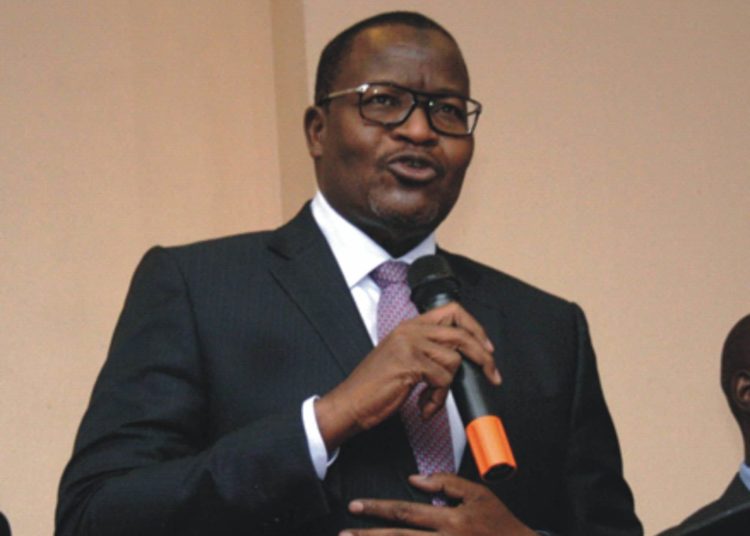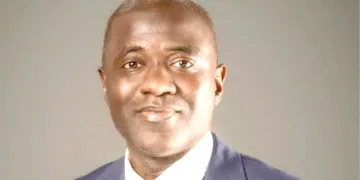The Nigerian Communications Commission (NCC) and telecommunications operators have called for concerted efforts from all stakeholders to address the recurring issue of telecommunications infrastructure destruction which is eroding the gains the telecom sector has made in the last 21 years.
Telecoms infrastructure have become a Critical National Infrastructure (CNI) that if it goes down, it negatively impacts all facets of the economy. Every sector of the economy today leverages on telecoms service, making it the infrastructure of infrastructures.
Recall that the Industry Working Group on Multiple Taxation, constituted by the NCC, in a working document titled, ‘Brief on the Designation of Telecommunications Infrastructure as Critical National Infrastructure’, defined critical infrastructure assets as essential for the effective functioning of any society or economy.
According to them, communication infrastructure was a critical national asset and deserved the highest levels of protection since they were important to the efficient functioning of any society.
According to the Industry Working Group, “A breakdown in the communications system can lead to a breakdown in many other societal systems which depend upon communication and exchange of information to function successfully.” According to an expert in the industry, telecom infrastructure was prone to theft, vandalisation, destruction, and seizure.
Just at the weekend, the Commission disclosed that over 50,000 cases of major destruction to telecom infrastructure and facilities have been reported across the country in the past five years, raising alarm over the implication of these incidents to the quality of telecommunications services in Nigeria.
The executive vice chairman of the NCC, Prof. Umar Danbatta, who disclosed this at the 2022 edition of Youth Civil Society and Stakeholders Summit (YCSSS), which took place at the Army Resource Centre, Abuja, expressed worry over how these incidents have continued to affect the Quality of Experience, (QoE), of consumers.
He called for concerted efforts by the members of the public, and security agencies, to stem this tide. Danbatta was represented by the Head, Corporate Communications Unit of the Public Affairs Department of NCC, Mrs. Nnena Ukoha at the event.
He said the negative impacts of incessant vandalism of telecom equipment, evidenced in fibre cuts, theft of telecom facilities like generators at sites, vandalism of base stations, among other vices, have become a major burden on the service providers, while telecom consumers have continued to suffer unwarranted disruptions of their hard-earned services.
“The impact of vandalism of infrastructure is felt by all in the quality of services rendered as it results in increasing drop calls, data and Internet connectivity disruptions, aborted and undelivered short messaging services (SMS), as well as countless failed calls”, he said.
Prof Danbatta said that, considering the well-known fact that the ability to connect and communicate is fundamental to human existence, improvement in businesses processes, government services, education, as well as social and family networking through seamless connections, every community should get involved in protecting the critical infrastructure that makes these services possible.
“Therefore, as a community, you are expected to report cases of vandalism of telecoms infrastructure to the nearest law enforcement agencies such as the Police, Nigeria Security and Civil Defence Corps, and also share adequate information received from NCC with your family, friends, and neighbours.
“We believe, with your cooperation as critical stakeholders in the telecoms sector, we can all work with the law enforcement authorities in protecting telecom infrastructure in your community”, Danbatta stated to emphasise the role of the communities in protecting critical national assets.
Recall that in July this year in Ibadan at the Village Square Dialogue, a telecom consumer outreach programme at the grassroots by NCC, chairman of the commission, Prof Adeolu Akande, emphasised the need to protect telecommunication infrastructure, adding that without telecom infrastructure, communication with families in long distances as well banking, finance, education, and entertainment would be hindered.
The NCC’s director of Consumers Affairs Bureau, Efosa Idehen in his remark, noted that one of the mandates of the Bureau was to protect, inform and educate the consumers on the needs to guide and protect communication infrastructures.
He, however, said protection of public infrastructure is a collective effort and not only meant for NCC. “Let’s all work together to ensure that the infrastructure is protected for better and quality delivery.”
At another telecom consumer conversation village square dialogue in Kano held in May this year with the theme ‘Protection of Telecom infrastructure for improved quality of service, the role of residents,’ organised by the NCC, the Commission disclosed that it receives over 40 vandalisation reports on telecom structures across the federation daily.
The EVC ofNCC, represented by Engr Bako Wakili, NCC director, Technical Standard and Network Integrity Department, at the event, said vandalisation of telecom structures reduced the quality of service as well as coverage area leading to dead spots on the network which result in poor quality of service, adding that it also discouraged investors from investing in Nigeria should their infrastructures be continuously vandalized or stolen.
Similarly, Malam Shu’aibu Swade, NCC zonal controller in Kano, said there is a need for robust sensitisation to solicit communities’ cooperation in protecting and guarding telecom structures for improved quality services to consumers.
He further stated that there is a need for the communities to understand that it is a duty upon them not to damage telecom infrastructure and also to allow installation of equipment and maintenance and or repairs on sites by the technical staff of service providers for quality telecom service delivery.
At another one-day sensitisation programme on “Protection of Telecom Infrastructure”, in Dikko/Sabbon Wuse, Niger State, NCC’s Director, Zonal Operations, Amina Shehu, said it is imperative for the public to regard telecom facilities as collectively owned infrastructure that is essential for the provision of efficient and acceptable telecom services that must be keenly protected.
Shehu, who was represented by Assistant Director in the commission, Mr. Abubakar Usman, said: “Vandalism of telecom infrastructure has continued to be a major challenge in the telecom industry. However, the commission has continued to collaborate with the relevant agencies to ensure adequate security for telecom facilities.”
In Q2 2020, NCC disclosed that major MNOs in the country recorded 9,077 cases of service outages on their networks, which resulted in unexpected disruptions to operators’ quality of service (QoS) delivery and intermittent quality of experience (QoE) by the consumers.
The Association of Licensed Telecommunications Operators of Nigeria (ALTON), said some other common components of telecom infrastructure including generating sets, batteries, automatic voltage regulator, radios, among others are stolen on almost on a daily basis, while fibres are cut arbitrarily.
The Nigerian Coordinator, Alliance for Affordable Internet (A4AI) and the former President, Association of Telecommunications Companies of Nigeria (ATCON), Olusola Teniola, has called on the Police, National Security Advisers to the President, and other security agents to assist the industry in the protection of telecom infrastructure.
“This will help improve QoS and reduce the costs of repairs in the industry to a nominal level,” he said. Teniola noted that the infrastructure that is being rolled out to support broadband services needs to be fully protected from vandalism, theft, and destruction and therefore the enforcement of the CNI under the Cybercrime bill needs to be enacted without any further delay.




